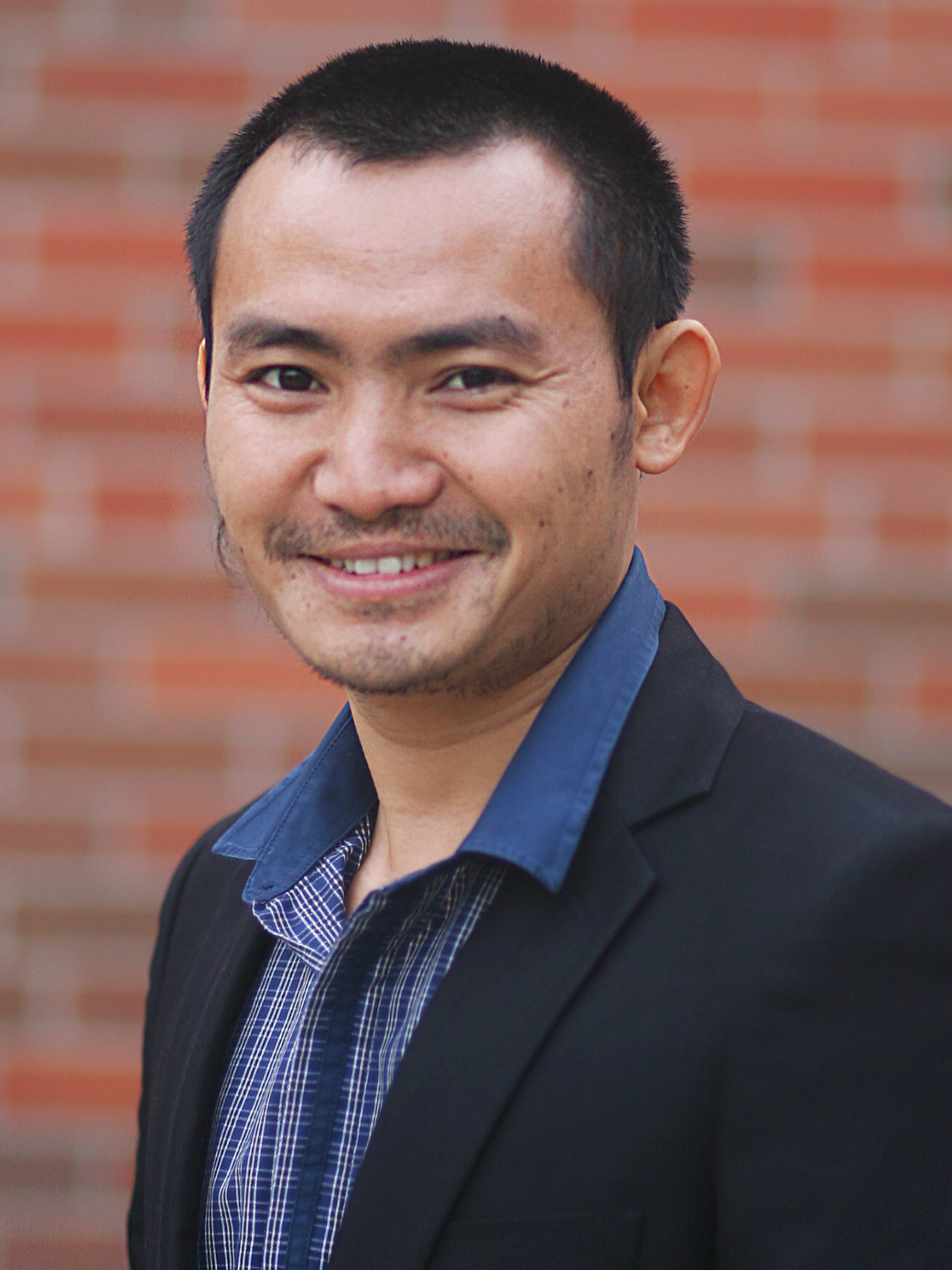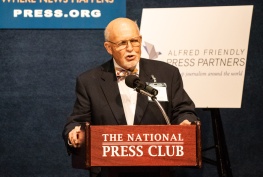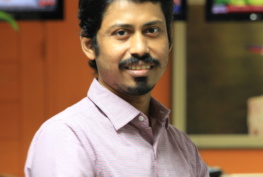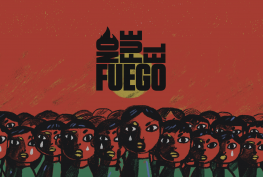Saw Yan Naing, an Alfred Friendly Fellow in 2015, worked for BBC Burmese and wrote for the Global Investigative Journalism Network and other international publications after his fellowship. He was a technical lead and media trainer at an international organization that closed its office in Myanmar after the coup.
By Saw Yan Naing
Early in the morning on February 1 in Yangon, I woke up without internet service or access to the phone and television networks.
I went outside and asked people in my neighborhood if they were able to use the internet and make calls. They said they were not.
It turned out that millions of people in Myanmar were cut off from the internet and mobile phone networks, except for those in some cafés, offices, and homes with WiFi. We could only watch a military-owned television channel, Myawaddy TV.
News of a coup and the arrest of democracy leader Aung San Suu Kyi and President Win Myint was the talk of the town. People fearing the consequences of the coup rushed to the markets to buy food while others went to ATM machines and banks to withdraw money.
A journalist friend of mine came to my home to check if I was safe and doing well. We went to a café where we could use WiFi to check the latest news.
Myawaddy TV announced a one-year state of emergency followed by a general election. After the election, power would be handed over to a winning party, a presenter reading from a script said. The presenter on Myawaddy TV announced that the new acting president was U Myint Swe, a former general who had been serving as a vice president.
I told my journalist friend that this one-year state of emergency is not a good sign for media workers, activists, and press freedom. We realized that the military, also known as Tatmadaw, will rule the country for at least one year.
Anticipating the risk of late-night raids and arrests, many journalists, including myself, moved around from one place to another to make sure we remained safe. Many journalists downloaded Signal apps to share information for safer communication. Some managed to use international sim cards and virtual private networks (VPN) as the internet is not stable.
An editor of a local media outlet told me that intelligence police officers from Special Branch went to ask his neighbors the whereabouts of his office and kept their eyes on his reporters. Five media workers were arrested on the night of February 14 while covering and live-streaming the tension between protesters and the joint force of police and soldiers. They were released on February 15 after signing a confession letter.
On February 16, the military-appointed State Administration Council held a press conference in Naypyidaw. Spokesperson Maj-Gen Zaw Min Tun said that the chairman of the State Administration Council, the army chief Sen-Gen Min Aung Hlaing, recognized the media as the fourth pillar.
Zaw Min Tun told Radio Free Asia at the press conference, however, that it was important that everything should be done within the bounds of the law and the military will do everything in accordance with the law. He also said that journalists whose writing encourages civil unrest would face action in accordance with the law.
The military prepared a cyber law. Media workers and activists fear that the law will be used as a tool to monitor and oppress journalists as well as limit press freedom, like the law that was used by previous military regimes.
So far, media workers and civilians, especially digitally savvy young people, continue to use digital platforms to report what is happening in Myanmar. However, we don’t know when this freedom will come to an end without warning. Internet shutdowns, restrictions to press freedom, and the fate of journalists in Myanmar remain uncertain under the one-year state of emergency.
Burmese media operating overseas and foreign media outlets will play an important role in reporting on Myanmar if and when the country is completely shut down.
The situation in Myanmar is getting worse as fighting and airstrikes were launched in southwestern Burma’s ethnic Karen State, my home region, forcing thousands to flee home. (When Yan Naing was a child, army soldiers attacked his home village and forced his family to flee. They lived for years at refugee camps just across the border in Thailand.)
The army airstrikes during the last five days of March in Karen State killed more than 10 people and injured at least 7 people. More explosions and fires were reported in big cities. Fighting between the Burmese army and ethnic armed groups in rural areas is escalating, forcing villagers to flee home and live in fear.
Activists, politicians, journalists, and even government employees fled violence in Myanmar, seeking safety in neighboring countries such as Thailand and India.
Protesters, especially young people, responded to military troops using guns and tear gas by creating homemade explosive devices and homemade guns. More than 600 people, including children, have died since the coup on February 1 and the military crackdown.
The situation in Myanmar is getting worse, and there is a possibility of civil war renewing under the military regime.
We honor Saw Yan Naing for his bravery in sharing this dispatch and appreciate his commitment to journalism at this challenging time. Your support goes directly to supporting the Fellows program that Yan Naing benefitted from in the past. Learn more and donate here: https://presspartners.org/support/individual-gifts/. Thank you!






